Finding inner peace is becoming increasingly important in our fast-paced and often chaotic world. Thankfully, there are powerful practices that can help us tap into a deep sense of calm and tranquility. This article delves into meditation benefits for body scans, morning rituals, and mindfulness – practices proven to unlock inner peace and profoundly benefit our mental, emotional, and physical well-being.
Meditation, the ancient practice of quieting the mind and focusing on the present moment, has gained immense popularity in recent years. With countless studies showcasing its positive effects on stress reduction, improved concentration, and overall life satisfaction, it’s no wonder more and more people are incorporating meditation into their daily routines.
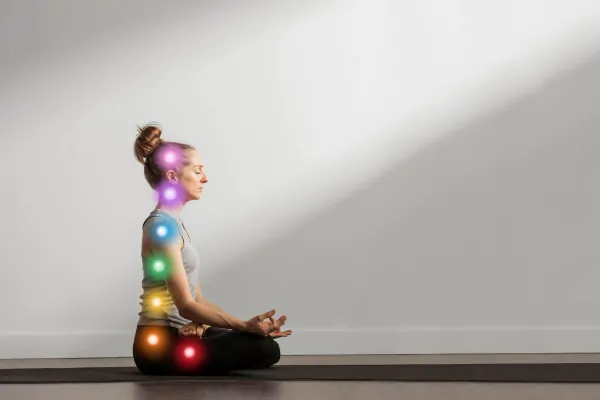
Another method explored in this article is the body scan technique, which allows us to reconnect with our physical sensations and release tension or discomfort. By systematically scanning our body from head to toe, we can identify areas of tension and learn to relax and let go.
Morning rituals are crucial in setting the tone for the day ahead. Whether enjoying a quiet cup of tea, practicing gratitude, or setting intentions, these rituals allow us to ground ourselves and cultivate a positive mindset.
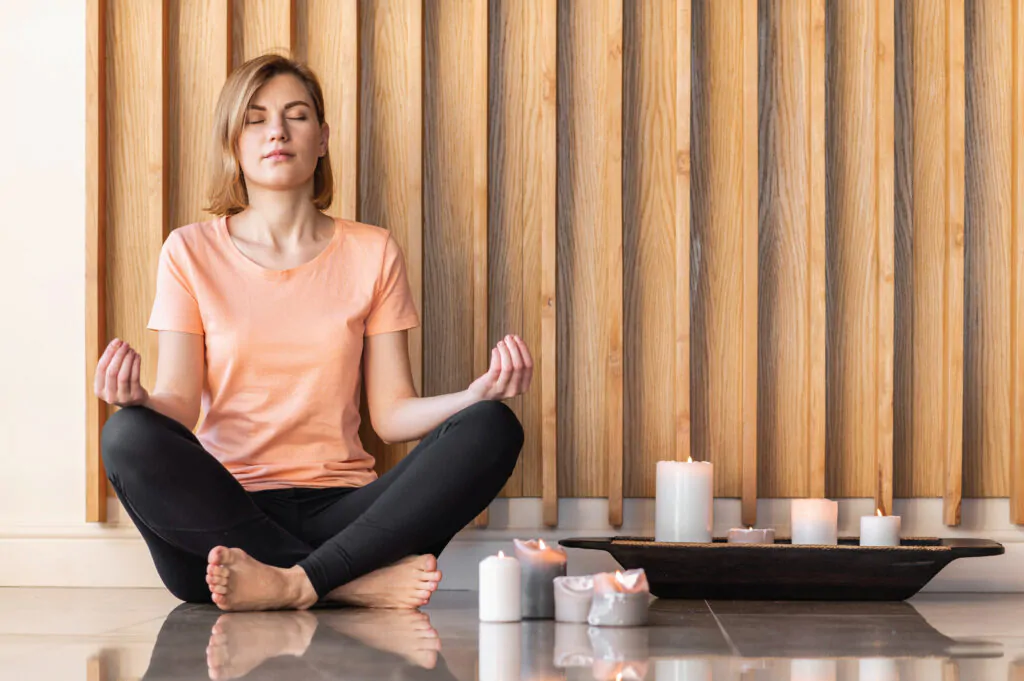
Lastly, mindfulness invites us to be fully present in each moment, fostering a deeper connection with ourselves and the world around us. We can cultivate self-awareness and resilience by paying attention to our thoughts, emotions, and sensations without judgment.
Join us as we explore these transformative practices and learn how to unlock inner peace.
Meditation benefits for inner peace:
Meditation, an ancient practice that has stood the test of time, is a powerful tool for cultivating inner peace. By quieting the mind and focusing on the present moment, meditation allows us to transcend the constant chatter of thoughts and emotions that can often lead to stress, anxiety, and restlessness.
Meditating creates a space for us without needing to do or achieve anything. This sense of presence and stillness can profoundly impact our overall well-being. Studies have shown that regular meditation can reduce symptoms of depression and anxiety, improve sleep quality, and enhance emotional regulation. By observing our thoughts and feelings with a non-judgmental attitude, we can develop greater self-awareness and the ability to respond to life’s challenges with more clarity and composure.

The benefits of meditation for inner peace extend beyond the individual. As we cultivate inner calm and clarity, we can also experience a greater sense of connection with others and the world around us. Meditation has been linked to increased empathy, compassion, and a deeper appreciation for the interconnectedness of all things. This can lead to more harmonious relationships and a greater sense of purpose and fulfillment. By tapping into the power of meditation, we can unlock the door to a more peaceful, balanced, and meaningful existence.
Understanding the body scan technique for relaxation:
The body scan technique is a powerful meditation practice that allows us to deepen our connection with the physical sensations in our body. We can cultivate a profound sense of relaxation and release by systematically focusing on different body parts, from the toes to the top of the head.
This practice begins by bringing awareness to the breath and allowing it to flow naturally. As we inhale and exhale, we gradually shift our focus to different areas of the body, noticing any sensations or tension that may be present. This could include a tingling in the fingers, a heaviness in the limbs, or a tightness in the shoulders.
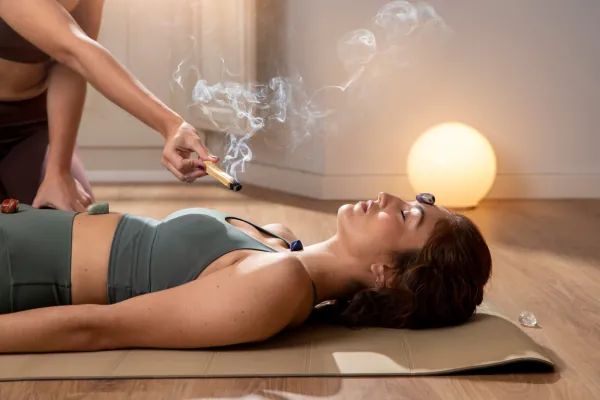
By observing these physical sensations without judgment or needing to change them, we create the space for the body to release and unwind naturally. The body scan technique taps into the body’s innate ability to self-regulate and restore balance. As we move our attention through the different parts of the body, we may notice areas of tension beginning to soften and a sense of deep relaxation and calm washing over us.
This practice is particularly beneficial for individuals who struggle with chronic stress, pain, or anxiety, as it provides a tangible way to reconnect with the body and foster a greater sense of embodied awareness. By incorporating the body scan technique into our daily lives, we can better understand our physical and emotional states and develop more effective strategies for managing stress and promoting overall well-being.
How morning rituals can enhance your overall well-being:
Starting the day with intentional practices and rituals can profoundly impact our well-being. By creating a consistent morning routine, we can set the tone for the day ahead and cultivate a positive mindset that carries us through the challenges and demands of daily life.

One of the most potent morning rituals is the practice of gratitude. Taking a few moments to reflect on the things we are grateful for, whether it’s a warm cup of coffee, the beauty of a sunrise, or the love of a family member, can shift our perspective and foster a sense of abundance and appreciation. This simple practice has been shown to reduce stress, improve mood, and enhance our overall life satisfaction.
Another transformative morning ritual is setting intentions. By taking a few minutes to reflect on our goals, values, and aspirations for the day, we can create a clear roadmap for navigating the hours ahead. This can help us stay focused, motivated, and aligned with our highest priorities despite distractions or unexpected obstacles.

Incorporating physical movements, such as a gentle yoga flow or a brisk walk, can also be valuable to a morning ritual. Engaging the body can boost energy, improve circulation, and create a more productive and focused day. Additionally, mindful meditation or journaling can provide a space for self-reflection, emotional processing, and personal growth.
Exploring different types of meditation benefits:
While the term “meditation” may conjure up images of sitting cross-legged in a quiet room, the reality is that a wide variety of meditation practices cater to different preferences and needs. Exploring the diversity of meditation techniques can help individuals find the approach that resonates most with them and their journey toward inner peace.

One of the most well-known forms of meditation is mindfulness meditation, which involves cultivating a non-judgmental awareness of the present moment. This practice encourages individuals to observe their thoughts, emotions, and physical sensations without getting caught up in them, allowing for greater clarity and acceptance. Mindfulness meditation has been shown to reduce stress, improve focus, and enhance emotional regulation.
Another widespread meditation benefits is loving-kindness (or metta), which focuses on cultivating compassion, kindness, and goodwill towards oneself and others. This practice can be particularly beneficial for individuals struggling with negative thought patterns, interpersonal conflicts, or a lack of self-acceptance. By directing these positive emotions inward and outward, practitioners can experience greater connection and inner peace.
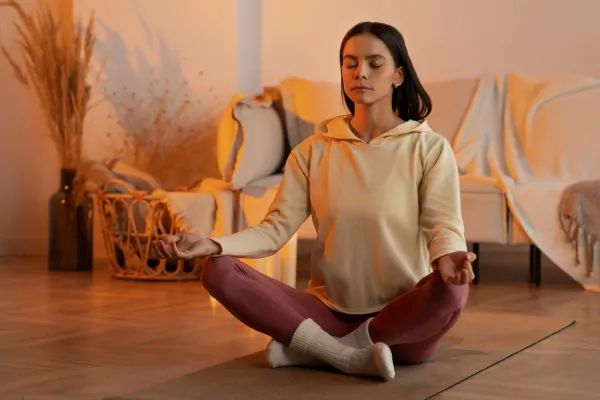
For those who prefer a more active approach, walking or moving meditation techniques, such as qigong or tai chi, can be a powerful way to integrate the mind-body connection. These practices encourage individuals to bring full attention to the body’s sensations in motion, fostering a deep sense of presence and mindfulness.
Incorporating mindfulness into your daily life:
Mindfulness, being fully present and attentive to the here and now, is a powerful tool for cultivating inner peace and personal growth. While meditation is a foundational practice for developing mindfulness, the principles of mindfulness can be applied to various aspects of our daily lives, allowing us to find moments of calm and clarity amidst the chaos.
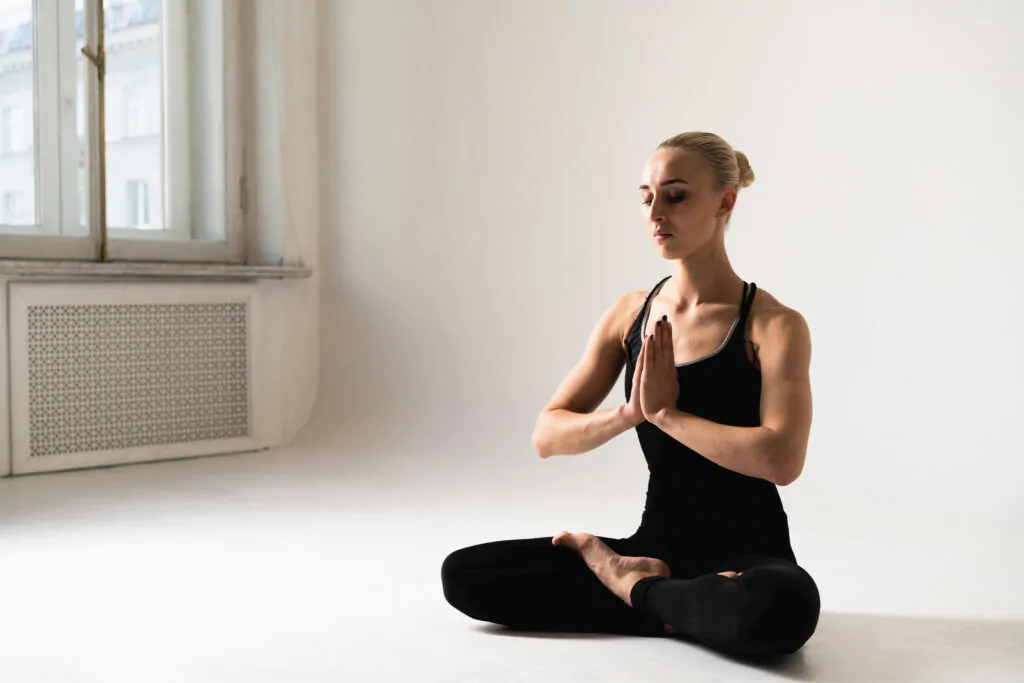
One way to incorporate mindfulness into our daily routines is through mindful eating. By slowing down and savoring each bite, paying attention to the flavors, textures, and sensations of the food, we can break free from the habit of mindless, distracted eating. This practice enhances our meal enjoyment, aids digestion, and promotes greater satisfaction and well-being.
Mindfulness can also be applied to our daily tasks and chores significant meditation benefits such as , transforming even the most mundane activities into opportunities for presence and awareness. Whether washing the dishes, folding laundry, or taking a shower, bringing our full attention to the present moment and the body’s sensations can help us find pockets of calm and clarity throughout the day. This can lead to a greater sense of engagement, focus, and even gratitude for the simple pleasures of everyday life.
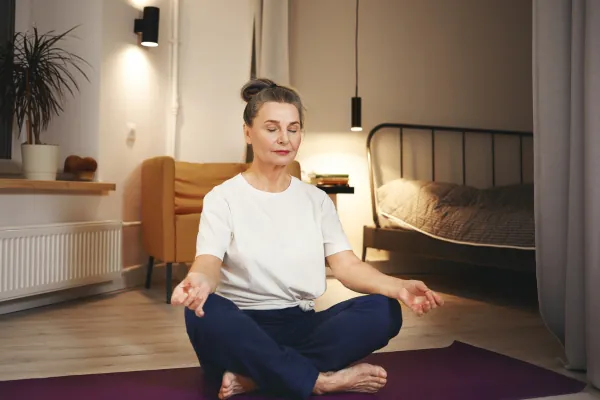
Integrating mindfulness into our relationships is another powerful way to cultivate inner peace. By actively listening to others, observing our thoughts and emotions during conversations, and responding with empathy and understanding, we can deepen our connections and foster more harmonious and fulfilling interpersonal experiences.
Tips for starting a meditation practice:
Embarking on a meditation practice can be a transformative journey, but it can also feel daunting, especially for those new to the practice. To help make the process more accessible and sustainable, here are some helpful tips for starting a meditation practice:
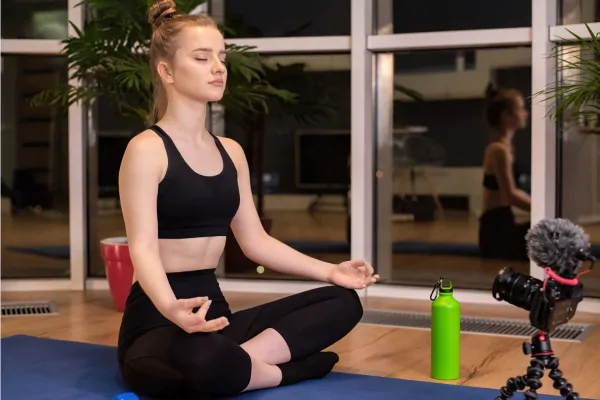
- Start small: Begin with 5-10 minutes of meditation daily. Consistency is critical, and it’s better to start with a manageable duration than to overwhelm yourself with extended sessions. Over time, you can gradually increase the length of your practice.
- Find a comfortable space: Choose a quiet, distraction-free area to sit or lie comfortably. This could be a dedicated meditation corner in your home, a peaceful natural spot, or a cozy living room chair.
- Experiment with different techniques: While some people may gravitate towards a particular style of meditation, such as mindfulness or loving-kindness, it’s worth exploring various methods to find what resonates most with you. Feel free to try new approaches and see what works best for your needs and preferences.
- Incorporate it into your routine: Make meditation a consistent part of your daily schedule, whether first thing in the morning, during your lunch break, or before bed. Treating it as a non-negotiable habit can help you establish a sustainable practice.
- Be patient and kind to yourself: Meditation is a practice, and it’s natural for the mind to wander or for you to experience challenges along the way. Approach your practice with self-compassion, and don’t be discouraged by perceived “failures.” Each moment of mindfulness is a success.
The science behind meditation and its effects on the brain:
The scientific community has conducted extensive research on the impact of meditation on the brain, and the findings are truly remarkable. As we delve into the neuroscience behind this ancient practice, we uncover how meditation can reshape our neural pathways and enhance our overall well-being.

One of the most well-documented benefits of meditation benefits is its ability to reduce stress and anxiety. Studies have shown that regular meditation practice can lead to a decrease in the activity of the amygdala, the part of the brain responsible for processing emotional responses, particularly those related to fear and anxiety. As the amygdala’s activity decreases, individuals report feeling calmer, more centered, and better equipped to manage stressful situations.
Meditation benefits has also been linked to increased activity in the prefrontal cortex, the brain region responsible for executive functions such as decision-making, problem-solving, and emotional regulation. As the prefrontal cortex becomes more active, individuals often experience enhanced focus, improved impulse control, and a more remarkable ability to respond to life’s challenges with clarity and composure.
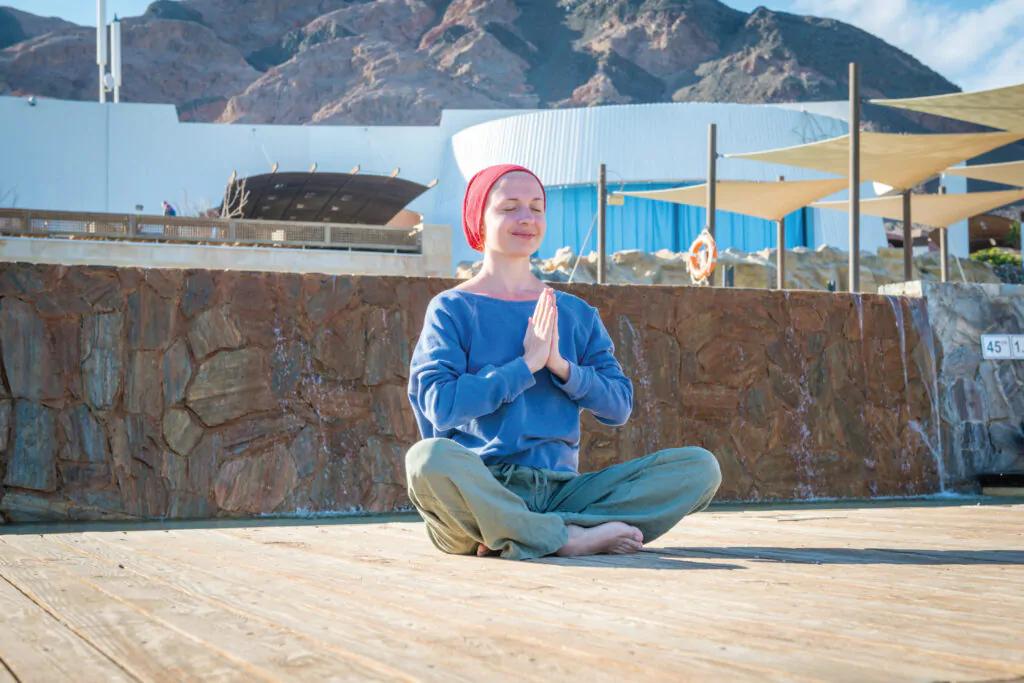
Furthermore, research has revealed that meditation can increase the thickness of the hippocampus, the part of the brain associated with learning, memory, and emotional processing. This structural change can lead to improved cognitive function, better memory retention, and a greater capacity for emotional resilience.
Meditation retreats, whether held in serene natural settings or dedicated retreat centers, provide an environment conducive to deep introspection and practice. These retreats often feature guided meditations, dharma talks, and individual and group reflection opportunities. Participants may engage in silent periods, mindful movement practices, and structured schedules that facilitate a deeper connection with the present moment.

In addition to meditation retreats, various workshops and classes cater to individuals at different stages of their practice. These offerings may focus on meditation techniques, such as mindfulness, loving-kindness, or breath-based practices. Alternatively, they may explore the intersection of meditation and other holistic modalities, such as yoga, qigong, or art therapy.
Regardless of the format, these immersive experiences provide a unique opportunity to step out of the routine of daily life, deepen one’s understanding of the practice, and cultivate a greater sense of inner peace and personal growth. Participants often report feeling rejuvenated, more connected to themselves and others, and better equipped to integrate the lessons of the retreat or workshop into their everyday lives.
Conclusion: Embracing inner peace through meditation benfits with mindfulness:
In our fast-paced, ever-changing world, the pursuit of inner peace has become increasingly vital. We can unlock the doorway to a more centered, balanced, and fulfilling existence through the transformative practices of meditation, body scans, morning rituals, and mindfulness.

By quieting the mind and cultivating a deep sense of presence, meditation allows us to transcend the constant chatter of thoughts and emotions that can so often lead to stress, anxiety, and restlessness. The body scan technique, in turn, invites us to reconnect with the physical sensations in our body, fostering a profound sense of relaxation and release.
Morning rituals, such as gratitude and intention-setting, provide a robust foundation for the day ahead, helping us approach the world with a positive mindset and a clear sense of purpose. By integrating the principles of mindfulness into our daily lives, we can find pockets of calm and clarity amidst the chaos, transforming even the most mundane tasks into opportunities for presence and awareness.

As we continue to explore these transformative practices, we unlock meditation benefits of ourselves, our relationships, and our place in the world. Inner peace is not a destination but a journey that requires patience, dedication, and a willingness to embrace the ebbs and flows of our lived experience. By embarking on this journey, we can cultivate a more resilient, compassionate, and fulfilling existence and inspire those around us to do the same.
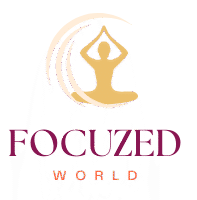
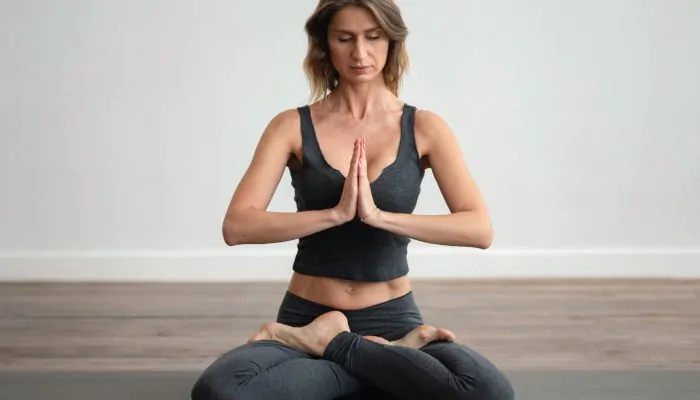
2 thoughts on “Unlocking Inner Peace: Exploring the 2 Profound Meditation benefits, Body Scan, Morning Rituals, and Mindfulness”
So impressive
This exercise helps a lot with relaxation and stress reduction. Important: You really have to do it regularly for it to work. And the text also explains in detail why. Very well done 🙂